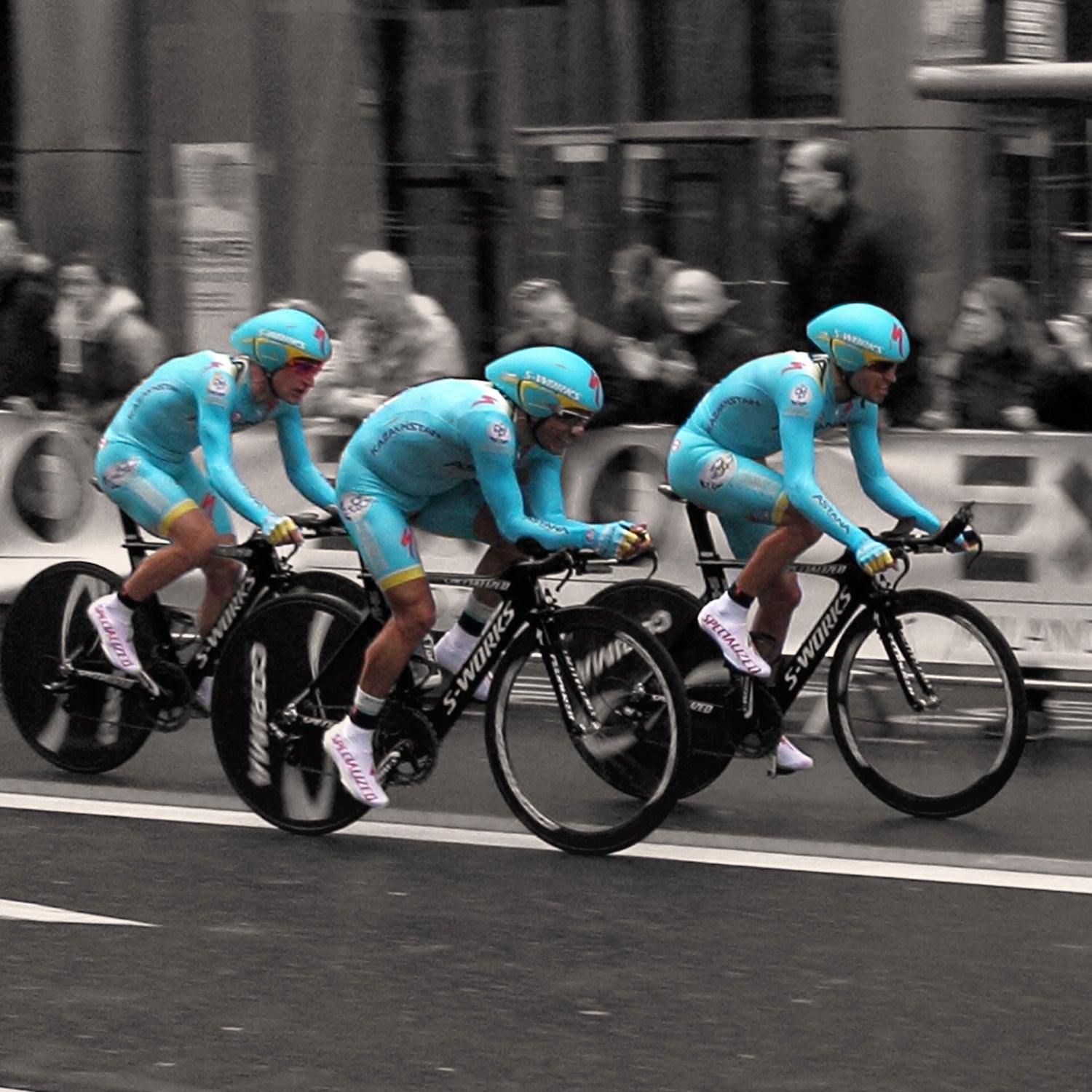After a week of speculation that cycling’s international governing body, the UCI, would prevent Astana—the team of Tour de France winner Vincenzo Nibali—from getting a license to race the sport’s top circuit, the impossible happened. Despite its well-publicized doping problems (including five positive tests in recent months), the team was granted a 2015 WorldTour license. The reaction was quick and largely uniform: dislike.
Other than a few scattered voices—including some of cycling’s less savory characters like —who defended the team, most saw Astana’s approval as a sign that cycling still has a lot of work to do to rebuild its credibility. Take, for instance, this tweet by German sprinter ���Ǵ����Ҿ����Գ�-�������Դ�:��
Or this one from current British national champion of Team Sky:
Little of that broader public reaction was a surprise. What did raise eyebrows was the response of UCI President Brian Cookson. While he defended the decision on narrow rule-based terms, he was clear in his displeasure, “I’m certainly not happy” with the outcome.
Cookson gritted his teeth and pointed out that, under the current rules, the decision was really the only one possible. But he also admitted that the rules themselves might need to change.
That’s not all.
The Astana debacle, and how the UCI felt its hands were tied regarding how it could respond, points out a fundamental truth in modern pro cycling: whatever gains the sport has made in the fight against doping are hard won, and easily lost. When the UCI license commission couldn’t ban Astana team over its known doping issues, it’s easy to despair about the sport’s future.
A space has been created in pro cycling where it’s possible to race clean, possible to win clean. But that ground is not stable, and there are signs it is eroding.
If you use the —the report that brought down Lance Armstrong—as a kind of reference point, you’ll find several schools of thought. One is that that report was a watershed moment, a cathartic exorcism of the sport’s past that gave it the freedom to move forward. A second is that it was mere theater, with Armstrong a scapegoat for the sins of the sport at large, sins that continue to be committed today.
And a third viewpoint holds that, whatever the truth of the USADA report, the sport really began to change of its own volition years before, in the wake of at the 2006 Tour de France and , a Spanish investigation that same year that showed doping practices were still widespread. In that view, the USADA report was a coda to an era that was already ending.
None of these narratives is purely true or purely false. Pro cycling has gotten cleaner. Since the disastrous years of 2006 and 2007, anti-doping testing became far more frequent; the biological passport was introduced (the first sport to do so) as a further check; and the culture began to change, with riders themselves becoming far more vocal about supporting clean sport and criticizing dopers.
But “cleaner” encompasses a broad range when you factor the starting line of cycling’s heavily doped past, and no serious person thinks the sport is “fixed.” What has happened over the past six years is that, for the first time since the advent of EPO, a space was created in pro cycling where it was possible to race clean, possible to win clean. Certainly not every winner is clean. But it is no longer a mandate to dope if you want to be competitive.
That ground is not yet stable, and there are signs—including Astana’s renewed WorldTour license—that it is susceptible to erosion. Doping became a systemic problem in cycling for three reasons: the emergence of effective techniques; the lack of effective testing; and the sport’s culture, which sent, at best, mixed messages. Those three threats are again resurgent.
One of the biggest concerns is micro-dosing, or the use of much smaller quantities of substances so that they still produce a performance benefit, but don’t trip the detection thresholds of conventional anti-doping tests or the biopassport.
The biopassport in particular is troubling. In five years, the UCI has brought just 14 total biopassport cases. Of the five cases prosecuted this year, two involved riders who’d already retired and two others hadn’t been on a pro team since 2012.
Even if the UCI had little legal choice but to approve Astana’s license, the lack of any real consequences so far for the teams’ awful track record is a troubling message about whether cultural change is sustainable.
Another huge concern: corruption in the anti-doping world and Olympic movement. Last week’s of corruption in Russia by German broadcaster ARD made clear that individual officials and even entire governing bodies can be corrupted. In his report, journalist Hajo Seppelt made clear that he thinks the issue is almost certainly not exclusive to Russia.
The failures of the Astana team underline that change has been uneven, at best. The drugs are still widely available. The change in the sport’s culture is mixed; teams like Astana, run and staffed by people with a long association with doping that has never been fully accounted for, are not uncommon. That means riders on teams that do support clean racing have to rely on the system to catch cheaters. If it can’t, then the sport risks a tipping point like the one that happened in the early 90s, when it became apparent to pros that, if they wanted to stay in the sport, doping was all but inevitable.
The UCI can spin it however it likes. The truth is that even if it had little legal choice but to approve Astana’s license, the lack of any real consequences so far for Astana’s awful track record is a troubling message about whether cultural change is sustainable.
Astana isn’t out of the woods yet. The UCI made clear that its license could be revoked for any further problems (or if investigations into past actions turn up new evidence). There’s an open debate right now about whether the team will make it to July and its defense of Vincenzo Nibali’s Tour de France title.
But right now, there’s another feeling: one that justice delayed is no different than justice denied. There’s a sense of puzzlement that, after all this time, and all these scandals, the UCI still finds itself virtually unarmed in this fight.
And finally, there’s a blend of cynicism and guarded hope. The cynicism is easy: the cumulative toll of almost two decades of lies and cheating, of false dawns for a new era of clean cycling that never seemed to materialize. But the hope comes primarily from Cookson, as plain-speaking and seemingly decent a president as the UCI has had in memory. And so we watch, and wait, hoping that with time, the UCI will have the weapons and the willpower it needs to effect change. But at some point, if that doesn’t come to pass, we’ll be left to wonder if it’s a fight that anyone can actually win.


